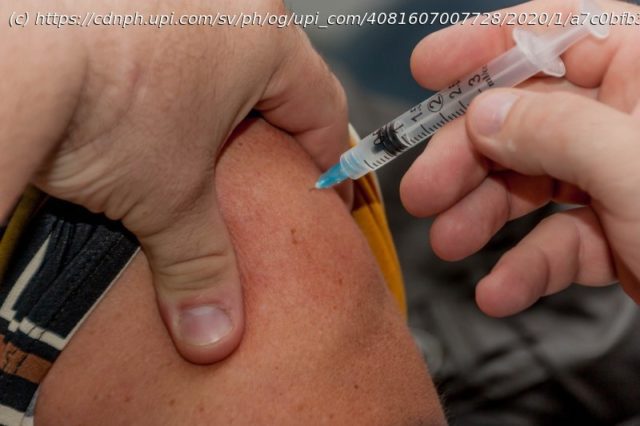The effectiveness of new vaccines developed to prevent COVID-19 likely depends on how well they are distributed and the degree to which the public is willing to take them, public health experts said.
Dec.3 (UPI) — The effectiveness of new vaccines developed to prevent COVID-19 likely depends on how well they are distributed and the degree to which the public is willing to take them, public health experts from Johns Hopkins University and Duke University said Thursday. The comments came on the same day the U.S. Centers for Disease Control and Prevention’s Advisory Committee on Immunization Practices published its recommendations on who should receive the initial doses of vaccine. The new guidelines suggest that the nation’s 21 million healthcare workers — as well as the 3 million residents of long-term care facilities, which have seen disproportionate numbers of COVID-19 cases and deaths — should receive priority. “Any vaccine is not going to be a silver bullet that brings us back to the pre-pandemic period,” Dr. William Moss said during a conference call with reporters on Thursday. While potential vaccines against the virus existing “just about a year after the pandemic was first identified is a truly remarkable achievement, [we] face numerous challenges in rolling out these vaccines,” said Moss, executive director of the International Vaccine Access Center at the Johns Hopkins Bloomberg School of Public Health. To date, two companies — Pfizer and Moderna — have applied for emergency use authorization for their vaccines to prevent COVID-19 from the U.S. Food and Drug Administration. Officials expect doses of one or both vaccines to become available in the United States before the end of this month. However, just how many doses will be ready for use over the next few months remains to be seen.
Home
United States
USA — Science COVID-19 vaccine efficacy depends on distribution, public confidence, experts say






